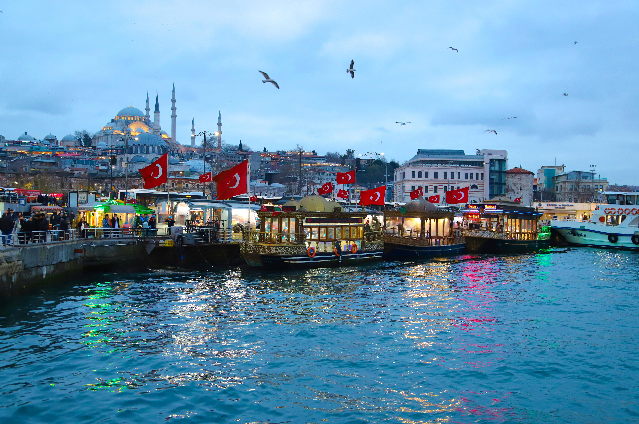
The move to change the name of Turkey to Türkiye (Tur-Key- YAY) is seen as part of a push by Ankara to rebrand the country and dissociate it's name from the bird, turkey, and the negative connotations associated with it.
The Turkish Foreign Minister Mevlut Cavusoglu has sent a letter to the United Nations formally requesting that his county be referred to as 'Türkiye' (Tur-Key-YAY) as it is spelled and pronounced in Turkish. The country called itself 'Türkiye' in 1923 after the Turkish War of Independence.
President Erdogan's government ordered the use of 'Türkiye' to better represent Turkish culture and values, including demanding that 'Made in Turkiye' be used instead of 'Made in Turkey' on exported products. Since the agency has approved the new name, the Turkish ministries began using 'Türkiye' in official documents. Earlier this year, the government also released a promotional video as part of it's attempts to change it's name in English. The video shows tourists from across the world saying 'Hello Türkiye' at famous destinations.
Although the word 'Turkey' slips in by anchors still trying to get used to the change. The Turkish Presidency's Directorate of Communications said if launched the campaign 'to promote more effectively the use of 'Türkiye' as the country's national and international name on international forums.
The decision was explained earlier this year said that Googling 'Turkey' brings up a muddled set of images, articles and dictionary definitions that conflate the country with Meleagris - otherwise known as the turkey, a large bird native to North America which is famous for being served on Christmas menus of Thanksgiving dinners. It further added that 'Flip through the Cambridge Dictionary and 'turkey' is defined as 'something that fails badly' or 'a stupid or silly person.' The Turks prefer their country to be called 'Turkiye', in 'keeping with the country's aims of determining now others should identify it.'
There are other countries that have changed their names either to drop colonial legacies or rebrand, as it is the case with Turkey. Some examples include such as,
- The Netherlands which was changed from Holland.
- Macedonia which changed its name to North Macedonia due to political disputes with Greece.
- Iran, which changed its name from Persia.
- Siam, which changed its name to Thailand.
- Rhodesia, which changed to Zimbabwe to drop it's colonial legacy.
. . .
References:
